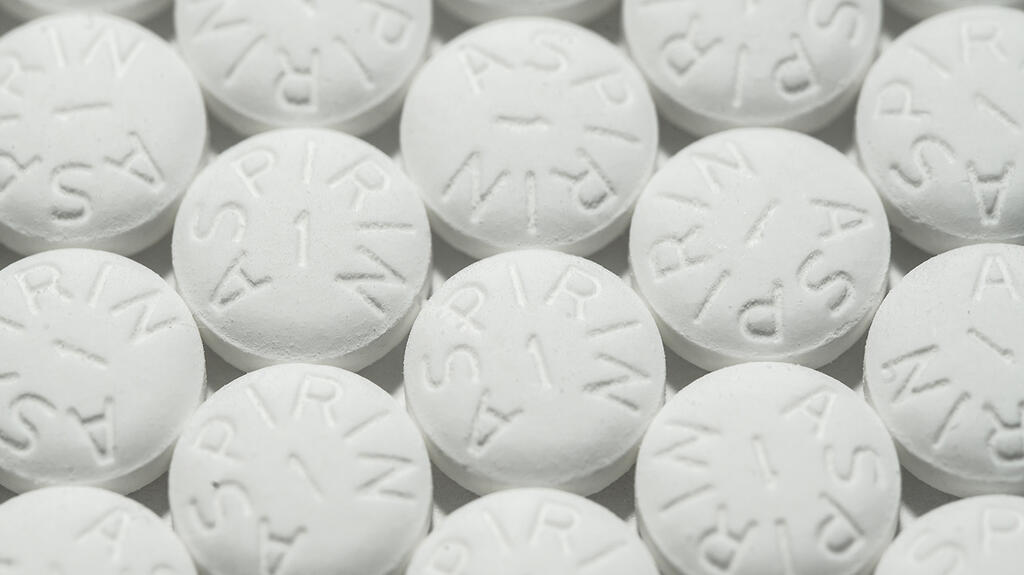For years, doctors have advised people considered at risk of developing blood clots to regularly take aspirin. This preventive treatment is based on the fact that, among its various effects, aspirin prevents platelets from binding to each other and forming clots. Clots can potentially cause blockages in blood vessels, leading to heart attacks, strokes and other medical complications, underscoring the importance of their prevention.
More stories:
The risk of stroke increases with age, but there are additional risk factors, such as smoking, a lack of physical activity, diabetes and more. Ninety percent of strokes result from a blood clot that reaches the brain and obstructs blood flow to a certain part of the brain tissue. Such an event, known as ischemic stroke, can significantly impair a patient’s functioning and disrupt vital abilities such as walking, movement, speech, reading, thinking and even breathing, and may even lead to fatal outcomes.
The other type of stroke is hemorrhagic stroke, which occurs when a blood vessel in the brain ruptures, causing blood to leak into brain tissue. While both types of strokes cause similar damage, ischemic stroke is much more common than hemorrhagic stroke, so it usually receives more attention.
Aspirin disrupts blood clotting, and since the coagulation mechanism is normally intended to stop bleeding, this common drug may exacerbate the damage caused by a hemorrhagic stroke. However, since ischemic stroke is more common, it is customary to recommend taking aspirin as a preventative treatment for it, assuming that the benefits of its prevention outweigh the increased risk of hemorrhagic stroke.
The problem is that aspirin not only protects the brain and heart from clots, but also prevents the formation of clots in any part of the body where bleeding occurs. Consequently, individuals taking aspirin tend to develop subcutaneous bleeding more frequently than those who do not use it, and their recovery is slower.
The real issue arises when such bleeding occurs in the brain, for example, following a head injury, in which case we must navigate a very delicate balance. On one hand, the tendency to fall increases with advanced age, along with the risk of head injuries that may damage blood vessels in the brain. On the other hand, old age also increases the likelihood of developing ischemic stroke due to blood clots.
Reality check
A large study published in 2023 in the medical journal JAMA tested the effectiveness of aspirin in preventing stroke. The findings raise questions about the use of aspirin without any immediate medical necessity, such as for the treatment of a known heart disease.
The study involved 19,114 adult participants. Half of them received preventive aspirin, that is, without any risk factors other than age, and the remaining participants received a placebo - a sham drug with no medical value. All participants were aged over 65 and had no previous history of heart disease or stroke, since individuals who had previously suffered a heart attack or a stroke might require aspirin as part of their routine treatment—rather than for prevention. The follow-up period for each participant lasted between 3.6 and 5.7 years.
The findings revealed that in the group that received aspirin, there were indeed fewer instances of stroke compared to the control group. However, the difference was small and not statistically significant: 166 members of the control group (1.7%) experienced an ischemic stroke during the experimental period, compared to 146 participants in the aspirin received (1.5%). In contrast, 49 participants who received aspirin suffered a hemorrhagic stroke during the experimental period, compared to 37 participants from the other group, indicating here too a minor and statistically insignificant difference.
So what should be done?
To date, the decision to prescribe aspirin as a preventive treatment for stroke is made in consultation between family doctors and their patients. The decision should take into account all existing risk factors, including age, family history of heart disease or stroke and more, and weigh the benefits of the treatment against its disadvantages for each individual.
Furthermore, it is always recommended to maintain a healthy lifestyle, which includes regular physical activity, a balanced diet, and avoidance of smoking - factors that contribute to the prevention of many other diseases.
The new study raises further doubts regarding the use of aspirin as a preventive treatment for stroke in patients without risk factors other than. However, it is important to remember that aspirin is not only prescribed for stroke prevention but also for the prevention of heart disease and other complications. In any case, it is always advisable to consult with your family doctor to receive personalized advice.




